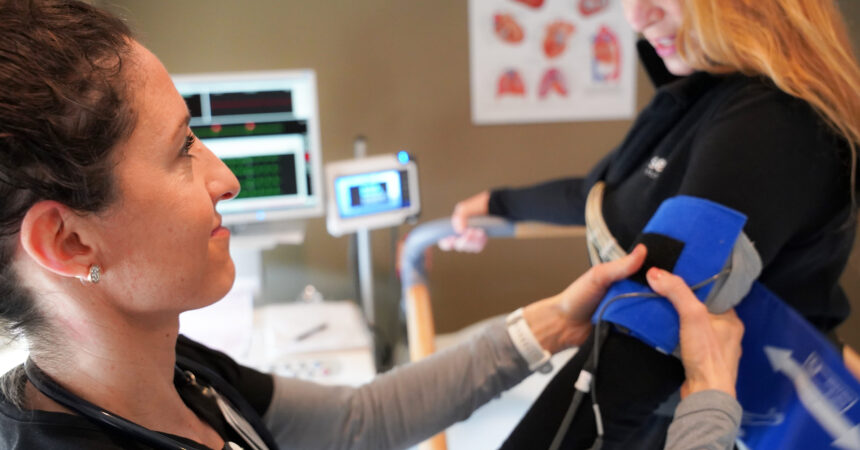Knowing and understanding a few key heart health numbers — blood pressure, cholesterol and heart rate, along with family history — can provide your health care team an overall picture of your current cardiac health. Those numbers can also provide you the information and motivation you need to maintain healthy heart numbers and improve less healthy ones.
Blood pressure
Blood pressure is a measure of how hard your blood pushes against your arteries as it moves through your body. High blood pressure, also known as hypertension, occurs when the force of your blood against the walls of your blood vessels is consistently too high.
The two numbers measured in a blood pressure reading are systolic blood pressure (the first number, which is the pressure in your arteries when your heart beats) and diastolic blood pressure (the second number, which is the pressure in your arteries when your heart rests between beats).
Blood pressure readings will fall into one of four categories:
- Normal: Less than 120/80
- Elevated: 120–129/80
- Hypertension stage 1: 130–139/80–89
- Hypertension stage 2: 140/90 or higher
High blood pressure is harmful because it makes the heart work harder and less efficiently. Fortunately, high blood pressure can be easily detected, and you can work with your health care team to control it.
Cholesterol
Cholesterol — a substance found in all your cells that travels throughout your body in your blood — can join with other substances to form a thick, hard deposit on the inside of your arteries. Sometimes these deposits can break suddenly and form a blockage that causes a heart attack or stroke. There are no symptoms for high cholesterol.
Cholesterol is carried in the blood as high-density lipoproteins (HDL, the “good” kind) and low-density lipoproteins (LDL, the “bad” kind). A simple rule of thumb is that you want as little of the bad kind as possible. Your health care provider can help you determine the cholesterol levels best for you based on your personal risk factors. Get your levels tested routinely and keep them under control.
Normal or healthy levels of cholesterol differ depending on your age and sex, but the basic guidelines are:
- People 19 and younger: LDL cholesterol less than 110 milligrams; HDL more than 45 milligrams
- Men 20 and older: LDL cholesterol less than 100 milligrams; HDL more than 40 milligrams
- Women 20 and older: LDL cholesterol less than 100 milligrams; HDL more than 50 milligrams
Heart rate/pulse
Your heart rate, or pulse, is the number of times your heart beats per minute. Your resting heart rate is the heart pumping the lowest amount of blood you need because you’re not exercising. If you are sitting or lying down while you’re calm, relaxed and aren’t ill, your heart rate is normally between 60 and 100 beats per minute.
Your target heart rate is the minimum heart rate to reach the level of energy necessary to give your heart a good workout. To find your target heart rate, the first step is determining your maximum heart rate. Your maximum heart rate is 220 minus your age, and your target heart rate for moderate exercise is about 50 to 85 percent of your maximum heart rate.
Family history
Understanding your family’s heart and general health history is key to understanding your overall risk of heart disease. Outlining your family health history can help you and your health care team understand if you have an increased risk for developing certain conditions present in your family. If you are at risk, you may be able to take preventive measures to decrease your risk.
While you can’t change your genes, you can control some aspects of your environment, such as diet, physical activity level and tobacco use. That’s why it’s important to make healthy choices every day, regardless of your personal and family health history.
Learn more about heart health or find a Pulse Heart Institute provider.
For more information about Pulse Heart Institute and its programs, visit the Pulse website or call:
Inland Northwest 509-755-5500
Puget Sound Region 253-572-7320




